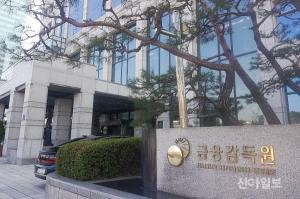Responding to regulatory changes, prolonged corona, anxiety factors, and digitalization risks

The Financial Supervisory Service concentrates its inspection capabilities to protect the rights and interests of financial consumers. It is planning to examine financial companies’ responses to regulatory changes, potential anxiety factors from the prolonged coronavirus, and risks from digitalization.
On the 21st, the Financial Supervisory Service prepared the ‘2021 Inspection Business Operation Plan’ containing the annual basic inspection direction and key inspection items to achieve the purpose of protecting financial consumers and stabilizing the financial system.
In response to changes in the financial environment, the Financial Supervisory Service established inspection directions centered on four major sectors in order to achieve a balanced goal of protecting financial consumers and stabilizing the financial system. Key inspection items include △ infringement of financial consumer rights △ response to regulatory changes △ potential anxiety factors due to prolonged corona and △ response to risks from digitalization.
First, it examines for acts of infringement on the rights and interests of financial consumers. The company plans to establish market discipline by intensively checking the incomplete sales and operation of high-risk products such as private equity funds, which have frequently suffered damage to financial consumers.
It also examines the transfer of unreasonable risks and costs to financial consumers, unfair business practices for vulnerable groups such as the elderly, and disturbances in market order.
In addition, responsible management in response to regulatory changes such as enforcement of the law enforcement regulations is encouraged, and the scope of inspection is expanded. Induce responsible management centered on financial consumers by checking the consumer protection organization and functions of financial companies, checking and improving weaknesses in internal control.
Due to legal regulations and amendments, financial companies newly incorporated into inspection targets will be constantly monitored and inspected to minimize inspection blind spots.
Potential anxiety factors caused by the prolonged corona 19 are also checked. The Financial Supervisory Service monitors individual financial institutions’ credit structure and delinquency rates and responds in advance so that financial institutions’ insolvency does not become present after the end of financial support and regulatory flexibility. For vulnerable companies, guidance is given to proactively increase capital.
In addition, it monitors the concentration of alternative investments such as overseas real estate funds, and also checks the status of risk management of financial companies in preparation for possible losses.
Finally, the Financial Supervisory Service examines the risks arising from changes in the digital financial environment. Overheated competition in non-face-to-face sales channels in the financial sector is monitored, and unsound business practices such as exaggerated advertisements and incomplete sales are checked.
The Financial Supervisory Service plans to flexibly adjust the inspection method according to the Corona 19 situation and changes in the financial environment, and induce financial companies to improve their self-correction function to improve inspection efficiency.
The number of inspections scheduled for this year was 793, up 180 times from 613 in the previous year, and the number of inspections was 23,630, an increase of 9,444 compared to the previous year. Comprehensive inspections are scheduled to be conducted 16 times this year and sector inspections 777 times.
Copyright © Shin-A Ilbo Unauthorized reproduction and redistribution prohibited
